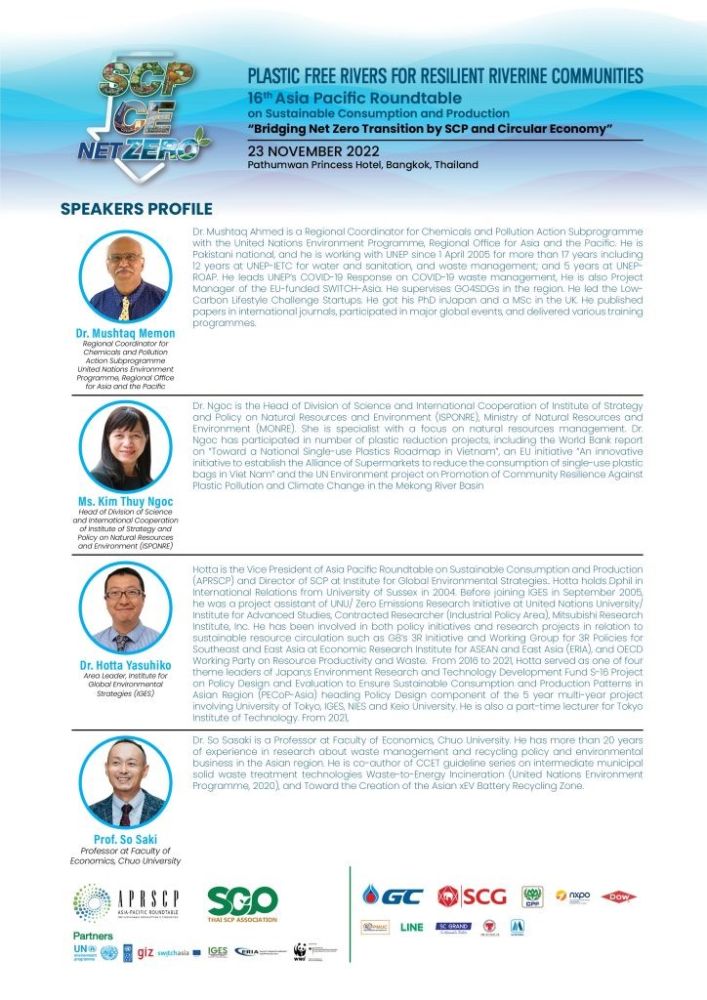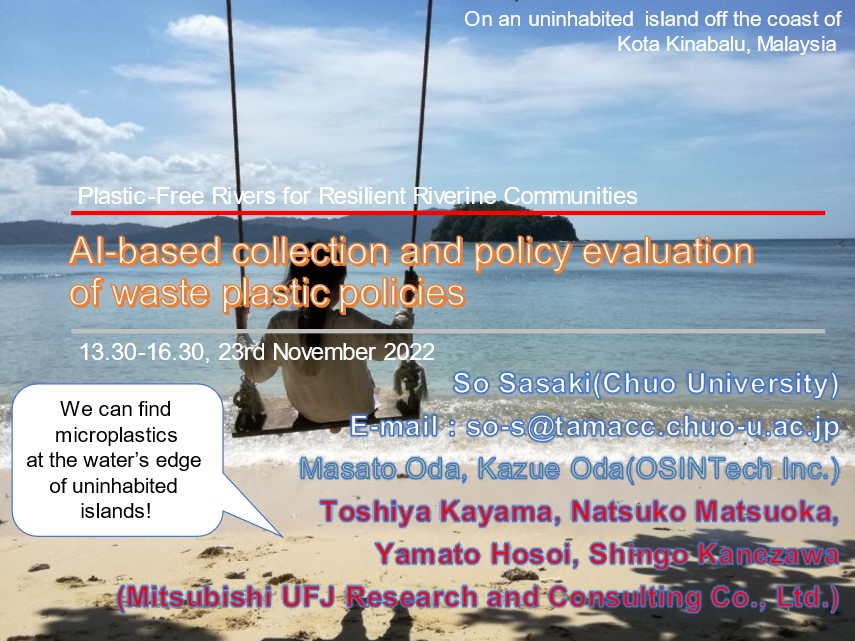2022.12.15
News
Professor So Sasaki of the Faculty of Economics was invited to a side event hosted by the UNEP and others to report on global waste plastic policy trends using AI
Professor So Sasaki of the Faculty of Economics was invited to speak at a side event, “Plastic-Free Rivers for Resilient Riverine Communities,” organized by the United Nations Environment Programme (UNEP) and the Asian Institute of Technology (AIT) during the international conference called “16th Asia Pacific Roundtable on Sustainable Consumption and Production (*1).”

Plastic pollution and marine waste are emerging global issues. More than 130 countries around the world are now considering and implementing measures to regulate the use of single-use plastics and to recycle plastics. However, the situation is changing day by day. The amount of waste plastic is increasing partly because of the increase in home delivery services due to the COVID-19 measures started in 2020, which is resulting in postponement of the implementation of related regulations and others.
In response to this, Professor Sasaki is currently conducting a research on the use of artificial intelligence (AI) to constantly monitor waste plastic policy trends, compile a database, and to conduct policy evaluations in the future to identify effective waste reduction policies. (*2)
*1) https://www.aprscp.net/
*2) Please refer to Research 01 in https://plus-c.chuo-u.ac.jp/researcher/so-sasaki/

In the report, Sasaki reported that by utilizing AI, more than 23,000 government documents related to microplastics could be collected from 1,018 government agencies around the world as of November 16, 2022.
Furthermore, an analysis of those government documents revealed that among the countries that have introduced single-use plastic regulations, regulatory methods have been adopted in 52% of the countries, and economic methods, such as environmental taxes, tolls, subsidies, or deposits, have been adopted in 42% of the countries, but only 48% have developed strategies such as reduction targets. Sasaki also reported on the direction of future policy evaluation based on these results.
This report is funded by the Environment Research and Technology Development Fund of the Environmental Restoration and Conservation Agency of Japan [JPMEERF21S11920] (*3) and funded by SATREPS (JPMJSA1901) (*4). This research is an industry-academia joint project with OSINTech Inc. (*5) and Mitsubishi UFJ Research and Consulting Co., Ltd. (*6).
*3) https://s-19pla.jp/index.html (Japanese only)
*4) https://www.jst.go.jp/global/english/kadai/r0101_thailand.html
*5) https://en.osintech.net/
*6) https://www.murc.jp/english/
